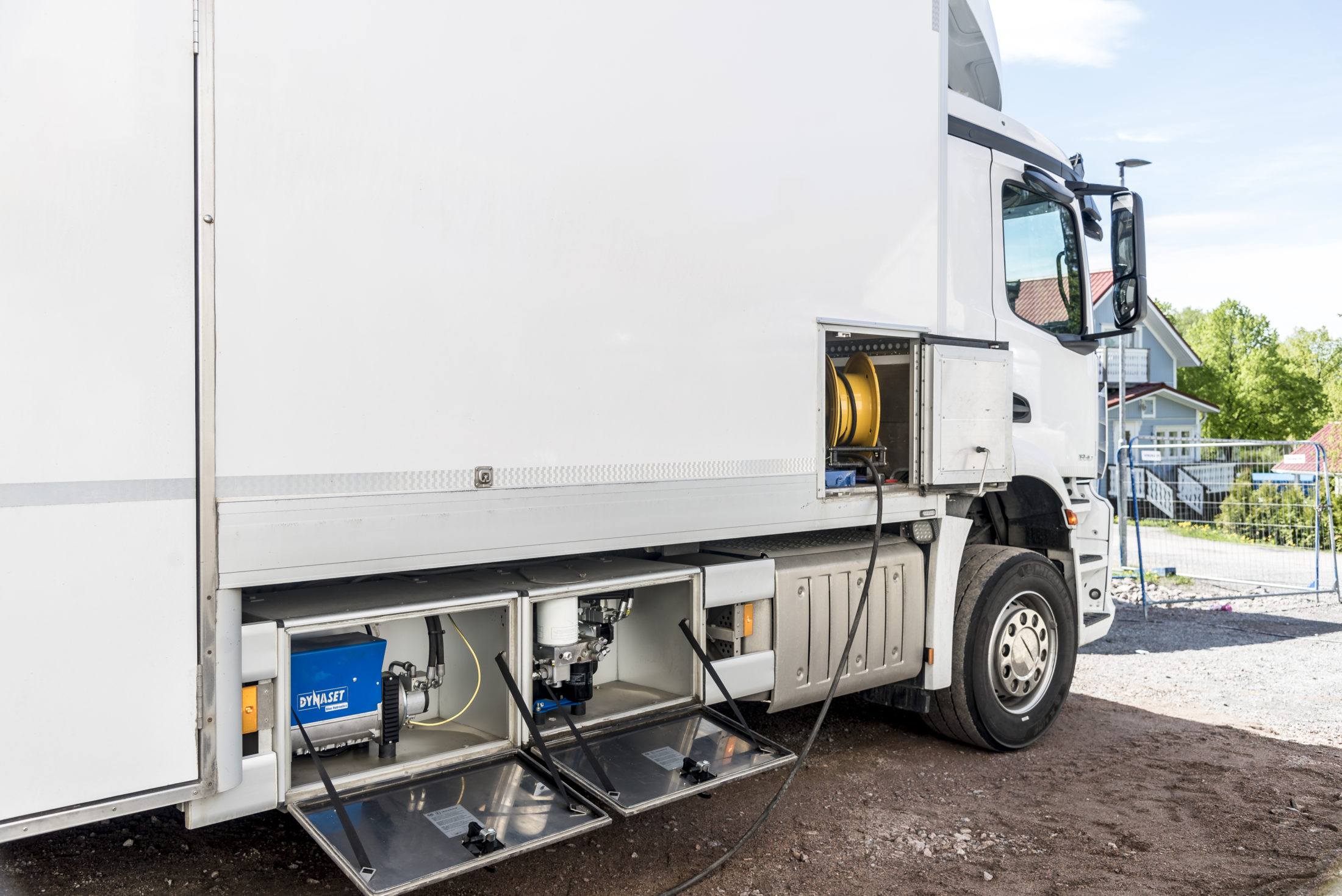Many people have asked us why they should choose a hydraulic generator instead of an inverter. This post’s idea is to give you some insight into what you need to consider when choosing between them. That’s because hydraulic generators and inverters both have their strengths. Let’s start with the placement of the power supply.
Where Will the Power Supply Be?
Firstly, you need to consider the spot where you want to install your power supply. Is it on your van’s load space or in the excavator’s side box? Dust, dirt, and all kinds of mechanical shocks can be fatal for power supplies, so you need to consider it when you are choosing the spot. Also, easy access to sockets is critical to take into account. It is good to know that inverters are electronic devices, so they are vulnerable to dust, moisture, and mechanical shocks. Hydraulic generators instead have a robust structure that helps them to survive in more demanding places.

How Much Power You Need?
Secondly, you need to know how much power you need. That’s because the output capacity correlates with the actual size of the power supply. The low-powered inverters are pretty small, but the hydraulic generators become more attractive when searching for a more powerful solution. The hydraulic generators are often smaller than equivalent inverters when you need three-phase electricity. As a rule of thumb, consider a hydraulic generator when your electricity demand is higher.

How You Would Use It and How Often?
Thirdly, the amount and type of usage are also big factors. Probably a small inverter will suffice for you if you use small amounts of electricity rarely. Also, the inverters are often used for recharging batteries of the battery-powered tools while driving. Just don’t forget to turn the inverter off when you don’t use it because the appliances that are connected to the inverter can drain the battery of the carrier vehicle or machine. The inverter also burdens vehicles or machine’s batteries in the long term because it uses the battery all the time when it is on.
You want to consider a hydraulic generator if you need electricity daily because they are designed for professional use. The hydraulic generator produces electricity with the power of hydraulic oil flow, so the carrier vehicle’s or machine’s engine runs when the generator is used. Thus, the hydraulic generator won’t burden the vehicle’s battery or it can’t drain it empty.
Due to the compact size of the generators, you can have a reliable and robust power supply without sacrificing that much space. Also, these generators are designed for long-term usage. Actually, there are some cases where the generator owner wanted to uninstall his generator from his old machine and reinstall it to his new machine.
Many vehicles have them both: inverter for the battery chargers and hydraulic generator for the electric tools and such.

What Kind of Electricity You Need?
The fourth thing to consider is the quality of electricity. This one can be a bit confusing. One important thing to know when choosing a power supply is the type of ac-electricity. The main question is: is it a pure sine wave or a modified sine wave? A long story short, pure sine wave allows you to use more delicate tools and gadgets. For example, LED lamps and laptops require pure sine wave electricity. The modified sine wave can cause flickering to lights or weird noises to your electric appliances, while the pure sine wave does not cause these. All DYNASET hydraulic generators produce pure sine wave electricity. This is not the case with inverters, so you have to check that before the decision.
How to Be Sure When You Decide to Choose Inverter Or Generator?
These things help you to evaluate the options. Like said, both have their strengths and all depends on your needs. The easiest way to find the best solution for your electricity demand is to ask our experts. Our experts can help you to find out a safe and reliable power supply for your vehicle or machine.


